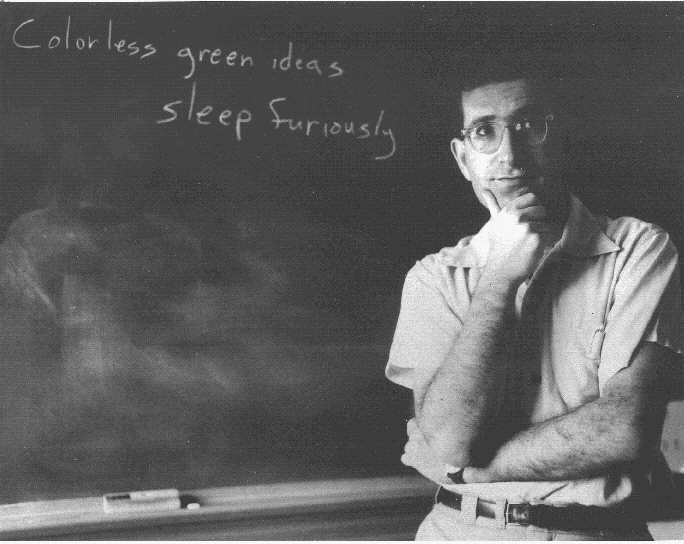Edited by Steve Bamlett, Friday 13 November 2015 at 13:12
Hi *******,
This is just speculation. I'm happy for you to put me right.
As I see it, Naom Chomsky's politics are not an effect of his theory of language but are derivable from it. He believes in innate structures at deep level that can undergo infinite creative changes in social use (at the level of 'performance') by the individual. Politically he stands against those who try to limit that creativity - powerful groups and 'their' governments and media that take on the role of 'manufacturing consent' (there is a wonderful BFI documentary on this) in individuals and groups derived socially from the bottom-up, which otherwise might think differently.
This fits with a principle of the infinite creativity of the individual within a common structure of biologically given humanity but it leaves each individual with political choices. This is the basis of what he called 'anarcho-syndicalism'. It is explored by the great Scottish socialist novelist, James Kelman, who was heavily influenced by Chomsky's politics and linguistics (see his novel 'Translated Accounts') and his use of 'natural' language.
In contrast, Alastair Pennycook seems to want us to have a pre-decided political programme in our applied linguistic critical analysis - something he finds missing in Widdowson. In contrast, Widdowson believes that the linguist merely describes analytically the 'real-life problem'. Action follows but still involves choices made in the light of what we discover.
Does this go on similar lines, *******, or am I wide of the beam.
Discussion on E854: Linguists and politics
Hi *******,
This is just speculation. I'm happy for you to put me right.
As I see it, Naom Chomsky's politics are not an effect of his theory of language but are derivable from it. He believes in innate structures at deep level that can undergo infinite creative changes in social use (at the level of 'performance') by the individual. Politically he stands against those who try to limit that creativity - powerful groups and 'their' governments and media that take on the role of 'manufacturing consent' (there is a wonderful BFI documentary on this) in individuals and groups derived socially from the bottom-up, which otherwise might think differently.
This fits with a principle of the infinite creativity of the individual within a common structure of biologically given humanity but it leaves each individual with political choices. This is the basis of what he called 'anarcho-syndicalism'. It is explored by the great Scottish socialist novelist, James Kelman, who was heavily influenced by Chomsky's politics and linguistics (see his novel 'Translated Accounts') and his use of 'natural' language.
In contrast, Alastair Pennycook seems to want us to have a pre-decided political programme in our applied linguistic critical analysis - something he finds missing in Widdowson. In contrast, Widdowson believes that the linguist merely describes analytically the 'real-life problem'. Action follows but still involves choices made in the light of what we discover.
Does this go on similar lines, *******, or am I wide of the beam.
All the best
Steve